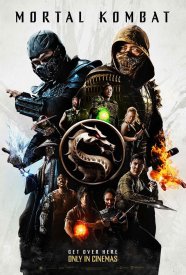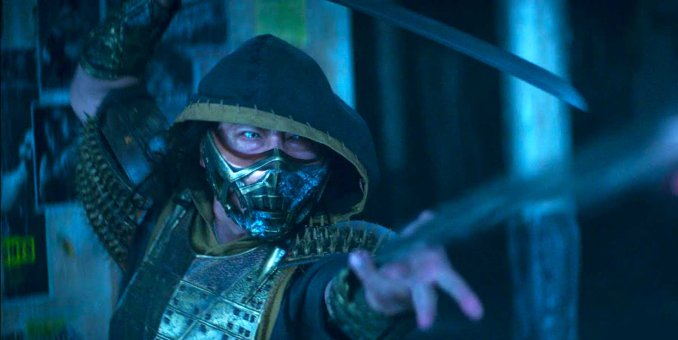 Cole Young is an MMA fighter who thinks that he will go no further in life than getting pounded on in the fight ring for $200 a night. But it turns out Cole is actually the last of a bloodline that was prophesized to protect Earth from invasion by other worlds by being the one to unite a number of champion fighters to win a fighting deathmatch tournament. He only finds this out when assassins for the evil sorcerer Shang Tsung show up to try and kill him and his family. They are saved by a group of other fighters who reveal themselves as others chosen for this tournament. Cole quickly finds himself in a world he never knew existed and training for a fight he might not be able to win.
Cole Young is an MMA fighter who thinks that he will go no further in life than getting pounded on in the fight ring for $200 a night. But it turns out Cole is actually the last of a bloodline that was prophesized to protect Earth from invasion by other worlds by being the one to unite a number of champion fighters to win a fighting deathmatch tournament. He only finds this out when assassins for the evil sorcerer Shang Tsung show up to try and kill him and his family. They are saved by a group of other fighters who reveal themselves as others chosen for this tournament. Cole quickly finds himself in a world he never knew existed and training for a fight he might not be able to win.
With its mentions of OutWorld, otherworldly gods, past events of some sort of significance or other and vague rules to this supposed tournament of champions, Mortal Kombat has enough background and lore lurking around its edges for at least three mid-1980s Star Wars knockoffs. (Looking at you, Krull.) Much of this is probably old news to fans of the franchise, who have steeped themselves in the world of the games for years, if not decades. But for the non-gamers, much of this exposition is glossed over or handwaved away. That disregard for defining the rules of the movie’s world makes it hard to feel what the consequences would be for the characters were they to lose.
Additionally, while it certainly wasn’t expected, the characters in Mortal Kombat did not have much depth. At best most get a line of dialogue to explain who they are and that is it. Right at the start, the relationship between Cole and the woman we come to find out is his wife is muddied and take nearly ten minutes to define. Likewise, the friendship and bond between Liu Kang and Kung Lao isn’t really defined until one of them meets their fate and we see how the other reacts. The cast doesn’t do much to enhance their parts with the exception of Josh Lawson as Kano, who makes a meal out of every piece of the set and scenery that he can get his hands on. Still, Mortal Kombat moves along at a brisk enough pace that such concerns generally don’t raise their heads until the credits are rolling.
Of course, the main events in the film are the fights. Mortal Kombat draws much from the wuxia films of the 1970s that the Shaw Brothers Studio in Hong Kong were putting out, as well as the wave of Hong Kong fantasy action films of the 1980s that started with director Tsui Hark’s classic Zu: Warriors From The Magic Mountain. Unfortunately, none of the film’s fight sequences really rise up to the level of energy and inventiveness that the best of those influences set, but they are entertaining. To his credit, director Simon McQuoid does shoot much of the individual fights rather wide. The look is to recall the layout of the video game, but it also lets the fight scenes play out in a more spectacular fashion. And the when those fight scenes come to an end, the film really earns its R rating with multiple deliveries of fatal blows. (Those uptight parents who were worried about video game violence when the original game came out really aren’t going to like this.)
Ultimately, Mortal Kombat is a movie made for fans. It has all the needed fan service in terms of favorite characters and lines of dialogue lifted from the games. But it isn’t necessarily exclusionary for the “Not We” who haven’t played the video games. If you are there for a looking for a movie where you can turn off your brain for some mindless action, you could do worse then this.



